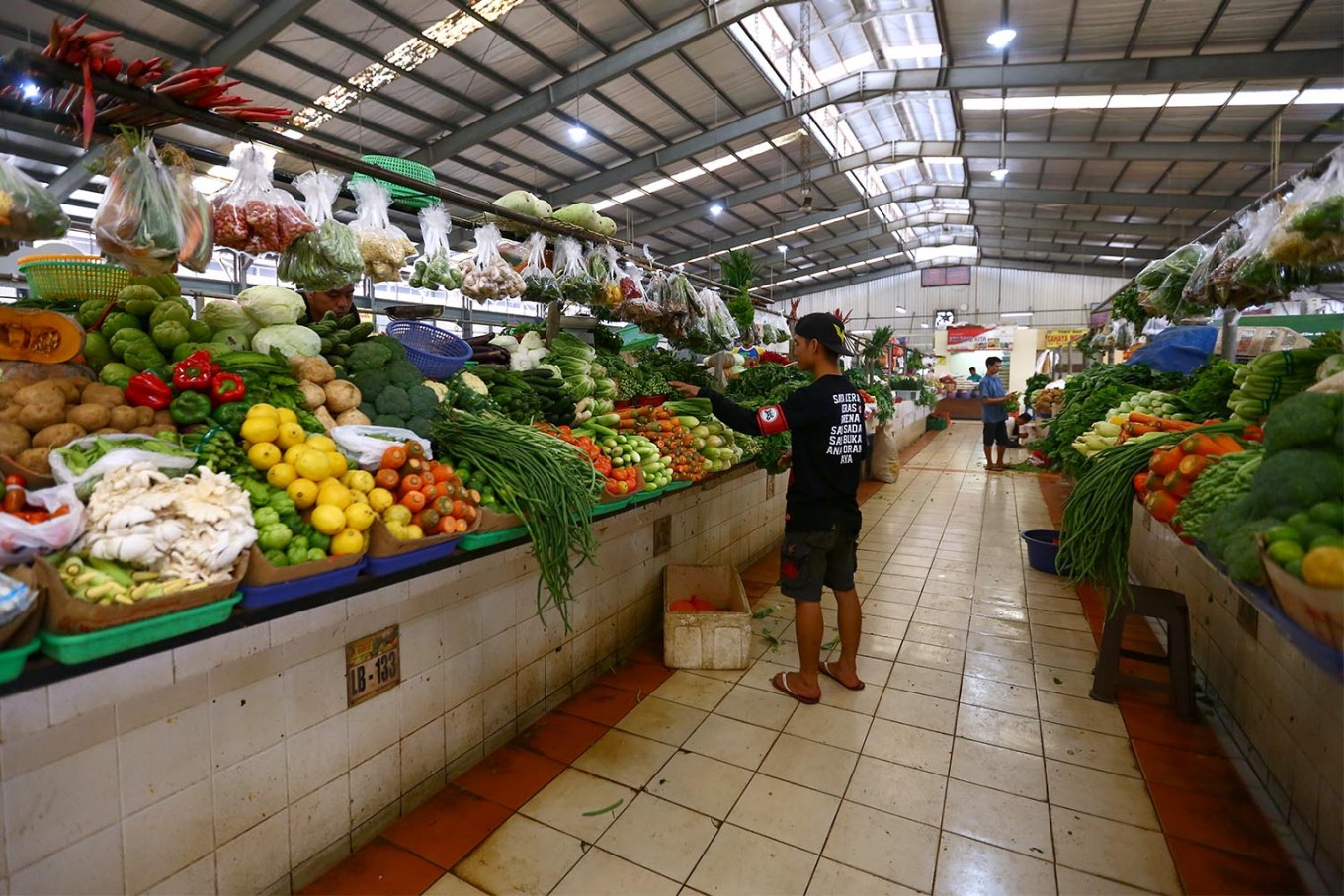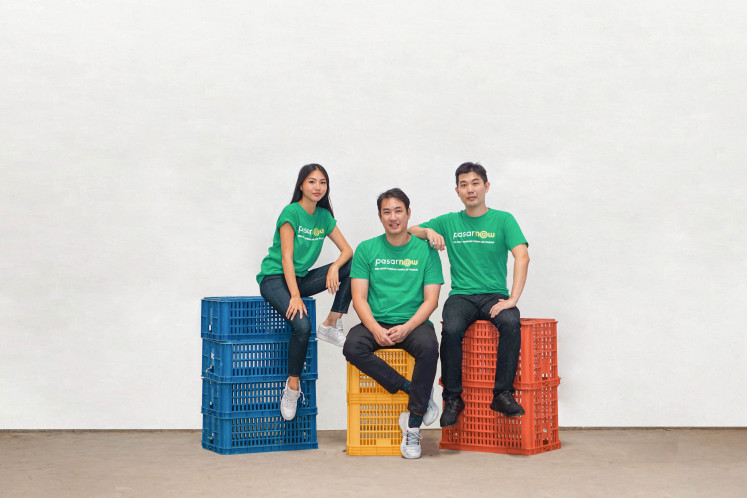VCs pour funds into burgeoning e-grocery segment
The grocery segment was the biggest gainer and gross merchandise value (GMV) driver in the e-commerce industry during the first six months of 2020.
Change text size
Gift Premium Articles
to Anyone

I
nvestors are scrambling to fund online grocery start-ups after the fresh food segment grew exponentially last year, driven by rising demand amid the COVID-19 pandemic.
At least six investment deals have gone to local e-grocery start-ups to date, three of which were early rounds for relatively new companies Pasarnow and Segari. The deals, ranging from US$3.3 million to $69.5 million, involved several notable venture capital firms, including BRI Ventures, East Ventures, GoTo's Go-Ventures, Openspace Ventures, Telkom’s MDI Ventures and Astra International’s Astra Digital.
The grocery segment was the biggest gainer and gross merchandise value (GMV) driver in the e-commerce industry during the first six months of 2020, according to a report from management consulting company Redseer, a trend that had whet investors’ appetite for e-grocery start-ups.
The firm predicted that Indonesia’s e-groceries GMV would reach $13 billion by 2025, which would amount to a 51 percent compound annual growth rate (CAGR) from only $7 million in 2018.
“Online grocery [shopping] has been developing nicely during the pandemic. The prospects for this market are bright,” Institute for Development of Economics and Finance (Indef) economist Nailul Huda said on Thursday.
Read also: Online grocery shopping to drive e-commerce growth as PSBB reimposed: Experts
Relatively new e-grocery start-ups Pasarnow and Segari simultaneously announced on Tuesday that they had received several million dollars in funding to expand their operations following a multifold revenue increase amid the pandemic.
Pasarnow received $3.3 million in seed funding led by East Ventures with participation from SMDV, Skystar Capital, Amand Ventures, Prasetia Dwidharma and several angel investors.
“Currently, Pasarnow operates in Greater Jakarta and Bandung [West Java]. This funding round enables us to cater to more customers and further increase our tech capabilities,” chief technology officer and cofounder Donald Wono said in a press statement.
Founded in 2019, Pasarnow has more than 1,000 farmers and suppliers in its ecosystem catering to business-to-business (B2B) and business-to-consumer (B2C) clients.
Driven by rising demand in online shopping during the pandemic, especially in the fresh food segment, the company saw its monthly revenue double.

Segari received $16 million in series A funding backed by Go-Ventures, as well as minimarket chain Alfamart and other investors. The investment was made only six months after Segari received its seed funding.
The company, which was launched last year, sells fresh products such as beef, vegetables and fruit via online platforms. Its users, orders and revenue have risen 20-fold in the past year, also driven by higher demand amid social restrictions.
Read also: Grocery start-up Segari bags $16m from GoTo, Alfamart
Established e-grocery players Sayurbox, HappyFresh and TaniHub have also received fundings this year. While Sayurbox received a moderate $5 million from diversified conglomerate PT Astra International early this year, HappyFresh and TaniHub raised a whopping $65 million and $69.5 million, respectively.
HappyFresh CEO Guillem Segarra said in July that the company had seen “unprecedented growth” in the past year as the company’s traffic grew 20-fold in all its markets, namely Indonesia, Malaysia and Thailand.
Read also: HappyFresh raises $65 million in series D, plans expansion in Indonesia
TaniHub received the largest amount of funding, which it will use to build new warehouses across the archipelago to boost transactions and fresh product exports.
Last year, the company reported a staggering 639 percent in gross revenue growth, propelled by an influx of demand at the onset of the pandemic. The growth is more than twice the 300 percent rate achieved in 2019.
Another Redseer survey showed that most consumers started using online grocery services during the COVID-19 social restriction period, and people would likely continue shopping online, including for fresh foods, even after the pandemic.
The fresh food segment, such as vegetables and meat, had started gaining prominence in the e-grocery mix this year. In 2020, the segment was dominated by fast-moving consumer goods such as packaged foods and beverages, the study added.
Indef’s Nailul said the burgeoning e-groceries market would continue attracting new players such as start-ups, super-apps and e-commerce firms expanding their business, as well as conventional grocery stores that are digitalizing their operations.
“Conventional grocery stores will not fall behind on this hype,” Nailul said, referring to supermarket and minimarket chains like Hypermart and Alfamart. “Existing tech companies will also expand their ecosystem to online groceries.”
Case in point, e-commerce Tokopedia recently expanded its groceries feature TokoMart. The company is also planning to expand its traditional market digitalization program.









